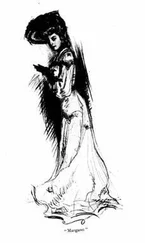James Cabell - The Cords of Vanity. A Comedy of Shirking
Здесь есть возможность читать онлайн «James Cabell - The Cords of Vanity. A Comedy of Shirking» весь текст электронной книги совершенно бесплатно (целиком полную версию без сокращений). В некоторых случаях можно слушать аудио, скачать через торрент в формате fb2 и присутствует краткое содержание. Жанр: Современная проза, на английском языке. Описание произведения, (предисловие) а так же отзывы посетителей доступны на портале библиотеки ЛибКат.
- Название:The Cords of Vanity. A Comedy of Shirking
- Автор:
- Жанр:
- Год:неизвестен
- ISBN:нет данных
- Рейтинг книги:3 / 5. Голосов: 1
-
Избранное:Добавить в избранное
- Отзывы:
-
Ваша оценка:
- 60
- 1
- 2
- 3
- 4
- 5
The Cords of Vanity. A Comedy of Shirking: краткое содержание, описание и аннотация
Предлагаем к чтению аннотацию, описание, краткое содержание или предисловие (зависит от того, что написал сам автор книги «The Cords of Vanity. A Comedy of Shirking»). Если вы не нашли необходимую информацию о книге — напишите в комментариях, мы постараемся отыскать её.
The Cords of Vanity. A Comedy of Shirking — читать онлайн бесплатно полную книгу (весь текст) целиком
Ниже представлен текст книги, разбитый по страницам. Система сохранения места последней прочитанной страницы, позволяет с удобством читать онлайн бесплатно книгу «The Cords of Vanity. A Comedy of Shirking», без необходимости каждый раз заново искать на чём Вы остановились. Поставьте закладку, и сможете в любой момент перейти на страницу, на которой закончили чтение.
Интервал:
Закладка:
And somehow I was holding her hand in mine, and my mouth was making irrelevant noises, and I was trembling. "It was close, but—look here, you must pull yourself together!" I pleaded; "because we haven't, as it were, the time for airy badinage and repartee—just now."
"I can't," she cried, hysterically. "Oh, I am so frightened! I can't!"
"You see," I said, with careful patience, "we must go on. I hate to seem too urgent, but we must , do you understand?" I waved my hand toward the east. "Why, look!" said I, as a thin tongue of flame leaped through the open trap-door and flickered wickedly for a moment against the paling gray of the sky.
She saw and shuddered. "I'll come," she murmured, listlessly, and rose to her feet.
4
I heaved another sigh of relief, and waving her aside from the ladder, dragged it after me to the eaves of the rear wing. As I had foreseen, this ladder reached easily to the eaves of the house behind the rear wing, and formed a passable though unsubstantial-looking bridge. I regarded it disapprovingly.
"It will only bear one," said I; "and we will have to crawl over separately after all. Are you up to it?"
"Please go first," said she, very quiet. And, after gazing into her face for a moment, I crept over gingerly, not caring to look down into the abyss beneath.
Then I spent a century in impotence, watching a fluffy, pink figure that swayed over a bottomless space and moved forward a hair's breadth each year. I made no sound during this interval. In fact, I do not remember drawing a really satisfactory breath from the time I left the hotel-roof, until I lifted a soft, faint-scented, panting bundle to the roof of the Councillor von Hollwig.
5
"You are," I cried, with conviction, "the bravest, the most—er—the bravest woman I ever knew!" I heaved a little sigh, but this time of content. "For I wonder," said I, in my soul, "if you have any idea what a beauty you are! what a wonderful, unspeakable beauty you are! Oh, you are everything that men ever imagined in dreams that left them weeping for sheer happiness—and more! You are—you, and I have held you in my arms for a moment; and, before high heaven, to repurchase that privilege I would consent to the burning of three or four more hotels and an odd city or so to boot!" But, aloud, I only said, "We are quite safe now, you know."
She laughed, bewilderingly. "I suppose," said she, "the next thing is to find a trap-door."
But there were, so far as we could discover, no trapdoors in the roof of the Councillor von Hollwig, or in the neighbouring roofs; and, after searching three of them carefully, I suggested the propriety of waiting till dawn to be melodramatically rescued.
"You see," I pointed out, "everybody is at the fire over yonder. But we are quite safe here, I would say, with an entire block of houses to promenade on; moreover, we have cheerful company, eligible central location in the very heart of the city, and the superb spectacle of a big fire at exactly the proper distance. Therefore," I continued, and with severity, "you will please have the kindness to explain your motives for wandering about the corridors of a burning hotel at four o'clock in the morning."
She sat down against a chimney and wrapped her gown about her. "I sleep very soundly," said she, "and we did both museums and six churches and the Palais de Justice and a deaf and dumb place and the cannon-foundry today,—and the cries awakened me,—and I reckon Mamma lost her head."
"And left you," thought I, "left you—to save a canary-bird! Good Lord! And so, you are an American and a Southerner as well."
"And you?" she asked.
"Ah—oh, yes, me!" I awoke sharply from admiration of her trailing lashes. The burning hotel was developing a splendid light wherein to see them. "I was writing—and I thought that Russian woman had a few friends to supper,—and I was looking for a rhyme when I found you," I concluded, with a fine coherence.
She looked up. It was incredible, but those heavy lashes disentangled quite easily. I was seized with a desire to see them again perform this interesting feat. "Verses?" said she, considering my slippers in a new light.
"Yes," I admitted, guiltily—"of Helen."
She echoed the name. It is an unusually beautiful name when properly spoken. "Why, that is my name, only we call it Elena."
"Late of Troy Town," said I, in explanation.
"Oh!" The lashes fell into their former state. It was hopeless this time; and manual aid would be required, inevitably. "I should think," said my compatriot, "that live women would be more—inspiring"
"Surely," I assented. I drew my gown about me and sat down. "But, you see, she is alive—to me." And I dwelt a trifle upon the last word.
"One would gather," said she, meditatively, "that you have an unrequited attachment for Helen of Troy."
I sighed a melancholy assent. The great eyes opened to their utmost. The effect was as disconcerting as that of a ship firing a broadside at you, but pleasanter. "Tell me all about it," said she, coaxingly.
"I have always loved her," I said, with gravity. "Long ago, when I was a little chap, I had a book— Stories of the Trojan War , or something of the sort. And there I first read of Helen—and remembered. There were pictures—outline pictures,—of quite abnormally straight-nosed warriors, with flat draperies which amply demonstrated that the laws of gravity were not yet discovered; and the pictures of slender goddesses, who had done their hair up carefully and gone no further in their dressing. Oh, the book was full of pictures,—and Helen's was the most manifestly impossible of them all. But I knew—I knew, even then, of her beauty, of that flawless beauty which made men's hearts as water and drew the bearded kings to Ilium to die for the woman at sight of whom they had put away all memories of distant homes and wives; that flawless beauty which buoyed the Trojans through the ten years of fighting and starvation, just with delight in gazing upon Queen Helen day by day, and with the joy of seeing her going about their streets. For I remembered!" And as I ended, I sighed effectively.
"I know," said she.
"'Or ever the knightly years had gone
With the old world to the grave,
I was a king in Babylon
And you were a Christian slave.'"
"Yes, only I was the slave, I think, and you—er—I mean, there goes the roof, and it is an uncommonly good thing for posterity you thought of the trap-door. Good thing the wind is veering, too. By Jove! look at those flames!" I cried, as the main body of the Continental toppled inward like a house of cards; "they are splashing, actually splashing, like waves over a breakwater!"
I drew a deep breath and turned from the conflagration, only to encounter its reflection in her widened eyes. "Yes, I was a Trojan warrior," I resumed; "one of the many unknown men who sought and found death beside Scamander, trodden down by Achilles or Diomedes. So they died knowing they fought in a bad cause, but rapt with that joy they had in remembering the desire of the world and her perfect loveliness. She scarcely knew that I existed; but I had loved her; I had overheard some laughing words of hers in passing, and I treasured them as men treasure gold. Or she had spoken, perhaps—oh, day of days!—to me, in a low, courteous voice that came straight from the back of the throat and blundered very deliciously over the perplexities of our alien speech. I remembered—even as a boy, I remembered."
She cast back her head and laughed merrily. "I reckon," said she, "you are still a boy, or else you are the most amusing lunatic I ever met."
"No," I murmured, and I was not altogether playacting now, "that tale about Polyxo was a pure invention. Helen—and the gods be praised for it!—can never die. For it is hers to perpetuate that sense of unattainable beauty which never dies, which sways us just as potently as it did Homer, and Dr. Faustus, and the Merovingians too, I suppose, with memories of that unknown woman who, when we were boys, was very certainly some day, to be our mate. And so, whatever happens, she
Читать дальшеИнтервал:
Закладка:
Похожие книги на «The Cords of Vanity. A Comedy of Shirking»
Представляем Вашему вниманию похожие книги на «The Cords of Vanity. A Comedy of Shirking» списком для выбора. Мы отобрали схожую по названию и смыслу литературу в надежде предоставить читателям больше вариантов отыскать новые, интересные, ещё непрочитанные произведения.
Обсуждение, отзывы о книге «The Cords of Vanity. A Comedy of Shirking» и просто собственные мнения читателей. Оставьте ваши комментарии, напишите, что Вы думаете о произведении, его смысле или главных героях. Укажите что конкретно понравилось, а что нет, и почему Вы так считаете.



